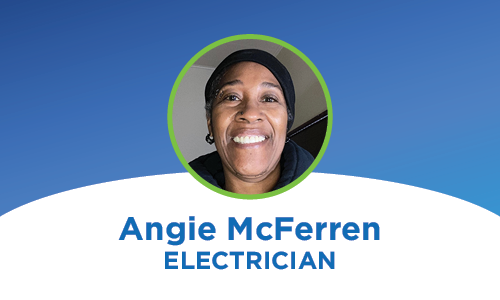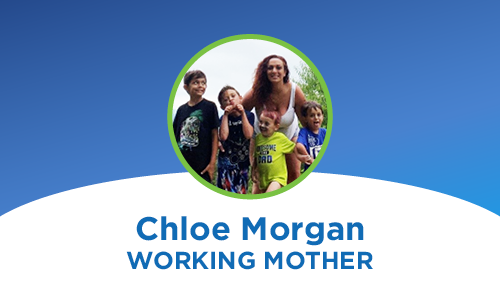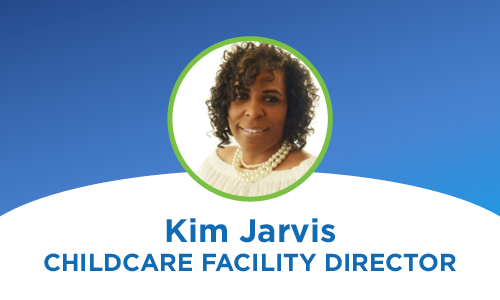Occupational Segregation: Tell Us Your Story
"Occupational segregation" is the gendered division of men and women into different types of jobs. It leads to women being overrepresented in certain jobs, which are generally valued and compensated less than male-dominated jobs.
We've heard from many working women about their experiences with gendered job expectations, the challenges they face at work, the supports that help them thrive, and the policy changes that would help them succeed.
Read their stories and tell us your story below.
Leslie Cotton - Plumbing Apprentice
"Our society sometimes has a tendency to paint certain careers and activities as 'male' or 'female.' That's what makes the pre-apprenticeships so great. It helps level the playing field. But, there aren't just barriers to entering, but also to staying in the trade – barriers with transportation, finding child care for long hours, having the funds for good boots and workwear, etc."

Angie McFerren - Electrician
"Having a non-traditional career has allowed me to learn about so many different tools. It has also allowed me to work on home projects that I would've never been able to do."

Cristina Barillas-Mcentee - Plumbers Local 130 UA
"Being in the trades has uplifted my life. I have an actual learned skill with the ability to teach others that same skill; this is something no one can take away."

Chloe Morgan - Working Mother
"Parents who work outside standard 9-5 business hours struggle to find safe and quality care for their children. Both the lack of appropriate sustainable wages for staff and affordable cost for parents will continue to perpetuate the cycle of poverty unless we remedy things.

Alvirleen Scott - Early Childhood Educator
"There is a lot that goes into my job. Not only are we required to be educated, but we prepare lesson plans, perform formal observations and assessments, and hold quarterly parent-teacher conferences. I think the No. 1 priority to value childcare providers like myself is by giving better pay and the workplace benefits we need"

Kalima Ramsey-Walker - Sheet Metal Worker L.U. 100
"This career has not only allowed me to financially take care of myself and my family, but it has also taught me great values."

Kim Jarvis - Childcare Facility Director
"The core of America – small business, union workers, healthcare workers and anyone working outside of their home with children five years and younger – rely on quality child care. The pandemic shined a spotlight on the value of essential workers and women in particular who comprise the majority of essential personnel. Without child care, women, who are the most impacted by lack of quality child care, will not be able to enter the workforce."

Tell us your story!
How has working in a male-dominated field affected you?
How has working in a female-dominated field affected you?
What assumptions about "men's work" and "women's work" do you want to challenge?
What policy changes would help you succeed at work?
If applicable, how has your participation in a Women’s Bureau WANTO grant-funded program impacted your life?
